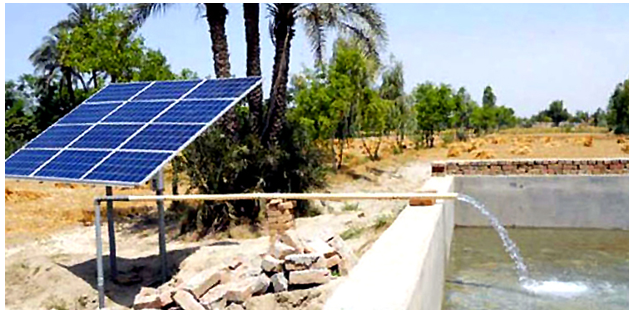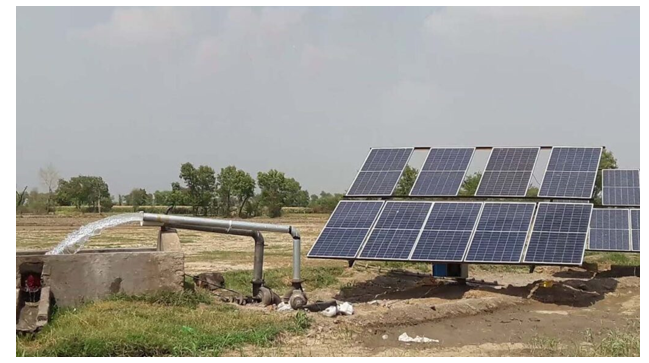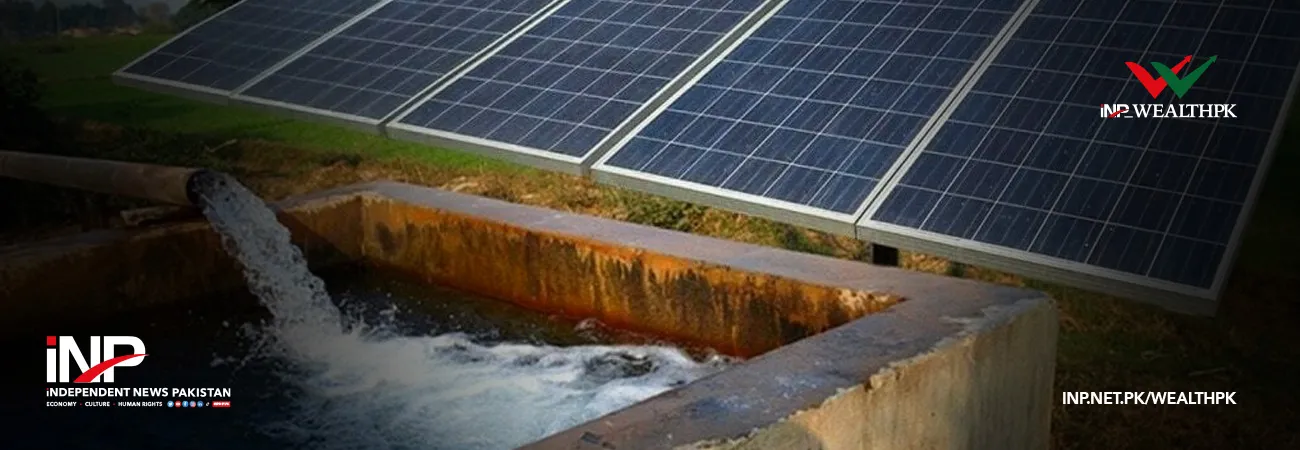INP-WealthPk
Ahmed Khan Malik
The Balochistan government has allocated a hefty Rs10 billion to convert agricultural tube wells to solar power.

“Around 30,000 tube wells in the province receive subsidies for their power bills, and these are now being converted to solar energy under the policy of the federal government,” Saleh Qumbrani, Additional Director of the Balochistan Agriculture Department, told WealthPK. He said that the subsidies for these tube wells were a significant expense for the government, thus necessitating their conversion to solar power. He pointed out that Balochistan has huge resources in the energy sector, especially the solar energy, which is now being tapped to support the sectors like agriculture.

Saleh said that total cost of this project is Rs55bn, with 70% funded by the federal government and the rest covered by the Balochistan government. He pointed out that the project had long been under consideration, however a breakthrough came in May when the federal government decided to move forward with it. Under the existing policy, the federal and provincial governments spend Rs23 billion annually on tube well subsidies. Noor Mastoi, Director of the Agriculture Research Centre, said that solarisation of tube wells in Balochistan stands as a testament to the government’s unwavering commitment to promoting innovation, sustainability and inclusive growth in the agriculture sector. “By embracing renewable energy solutions and leveraging technological advancements, Balochistan is setting a precedent for harnessing clean energy for agricultural transformation and sustainable development.”
“The success of this initiative will not only benefit farmers in Balochistan but also pave the way for a brighter and more sustainable future for agriculture in the country,” he said. He said that it is imperative for the federal and provincial governments to collaborate closely with relevant stakeholders, including farmers, local communities and technical experts, to ensure effective implementation and long-term sustainability of the project. “Comprehensive awareness campaigns, capacity building initiatives, and monitoring mechanisms should be instituted to facilitate the transition to solar energy and maximise the project’s impact on agricultural productivity and rural development,” he underscored. Noor said that the decision to solarise tube wells is not just a technical upgrade but a strategic move towards inclusive development and sustainable growth. “By ensuring uninterrupted power supply for irrigation, farmers will be able to enhance crop yields, diversify agricultural practices, and improve their socioeconomic conditions.
The transition to solar energy aligns with global trends towards renewable energy adoption and underscores Pakistan’s commitment to sustainable development goals.” The director of the Agriculture Research Centre said that the move to shift from conventional electricity to solar power for tube wells is a timely intervention, considering the pressing need for reliable and affordable energy sources in rural areas. Through this initiative, the government aims to enhance agricultural productivity, boost rural livelihoods, and promote economic prosperity in the province. By empowering farmers with access to affordable electricity through solar technology, the project holds the potential to transform the agriculture landscape in Balochistan. Balochistan, known for its vast agricultural potential, has often grappled with issues related to limited access to electricity, resulting in frequent disruptions in water supply for irrigation purposes.
Credit: INP-WealthPk













